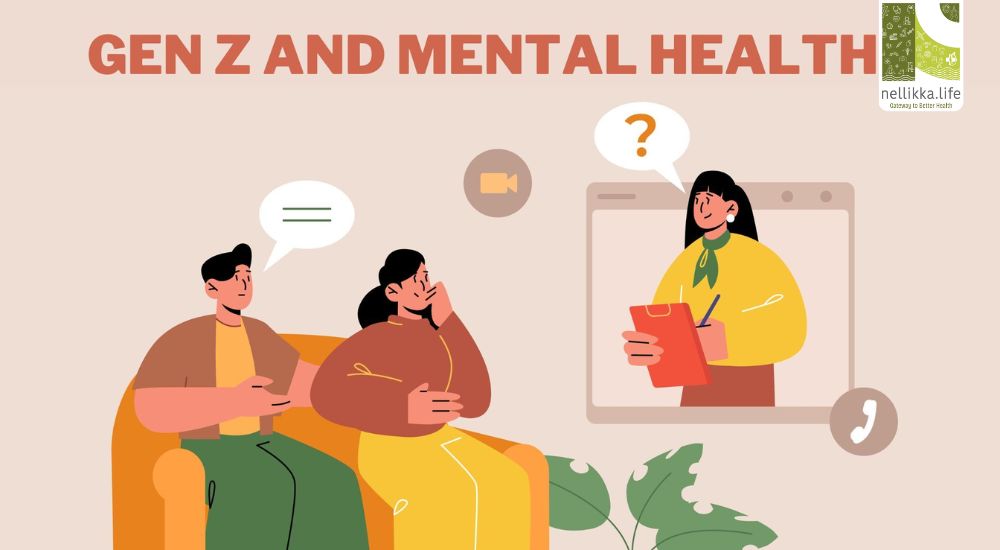Breaking the Cycle: Understanding Gen Z’s Mental Health Struggles in a Stigmatized World

The Inherited Silence
Mental health stigma isn’t new—but how it manifests, evolves, and restricts healing varies from generation to generation. Gen Z—those born between the mid-1990s and early 2010s—is perhaps the most aware yet most overwhelmed generation when it comes to psychological health.
While they talk openly about anxiety, burnout, or trauma, they also face inherited stigma from older generations, societal expectations, and digital pressures that older cohorts never experienced.
At nellikka.life, we believe understanding Gen Z’s unique mental health needs is the first step to breaking this generational cycle of silence and shame.
The Gen Z Mental Health Landscape: A Crisis in the Making
According to a 2022 report by the American Psychological Association, Gen Z reports the highest levels of stress, anxiety, and depression compared to older generations.
Common issues include:
- Anxiety disorders
- Imposter syndrome
- Climate grief
- Digital burnout and doomscrolling
- Body image dysmorphia (influenced by social media)
- Loneliness, even in hyper-connected virtual spaces
More than 90% of Gen Z in India say that mental health is just as important as physical health. Yet, only a small fraction actually receive therapy or structured psychological support.
Generational Stigma: Why Older Perspectives Still Hurt
Gen Z often hears statements like:
- “You’re just being dramatic.”
- “In our time, we didn’t even have time to think about mental health.”
- “You need to toughen up.”
- “Just go out and have fun—it’ll pass.”
These responses—rooted in Baby Boomer or Gen X culture—carry unintentional stigma and minimize emotional suffering. Many young adults begin to gaslight their own emotions, believing they’re too “soft” or “spoiled” to be struggling.
Digital Stress: A Unique Burden on Gen Z
Unlike older generations, Gen Z has grown up entirely online—their identities, relationships, and even insecurities are shaped by the digital world.
Key challenges:
- Comparison culture on Instagram, Snapchat, and LinkedIn
- Online bullying or cancel culture anxiety
- Performance pressure through hyper-visible success stories
- Sleep and dopamine dysregulation due to screen addiction
Studies have linked excessive screen time with anxiety, depression, and reduced attention spans in adolescents and young adults.
🩺 What Gen Z Needs (And Often Doesn’t Ask For)
Despite their digital fluency and mental health vocabulary, Gen Z still struggles to:
- Ask for help without shame
- Access affordable, confidential therapy
- Receive non-judgmental support from family and peers
They don’t need more Instagram quotes—they need real-time support, safe spaces, and science-backed strategies.
How to Support Gen Z
1. Create Judgment-Free Listening Zones
Parents, teachers, and employers must cultivate emotional openness—a space where Gen Z can speak without fear of being labelled “too sensitive.”
2. Offer Therapy That Respects Their Worldview
Modern therapy must address:
- Digital triggers
- Identity struggles
- Cultural pressures (especially in India)
3. Leverage Peer Support & Mental Health Literacy
- Peer-led support groups
- Mindfulness training
- Social media detox guides
4. Normalize Mental Health Days
Encourage workplaces and colleges to adopt mental health leaves and emotional resilience programs.
Gen Z Doesn’t Need Fixing. They Need Understanding.
The emotional pain Gen Z feels is real, and it deserves more than filters, dismissals, or generational lectures. It’s time to rewrite the mental health narrative—from stigma to support, from silence to solutions.





